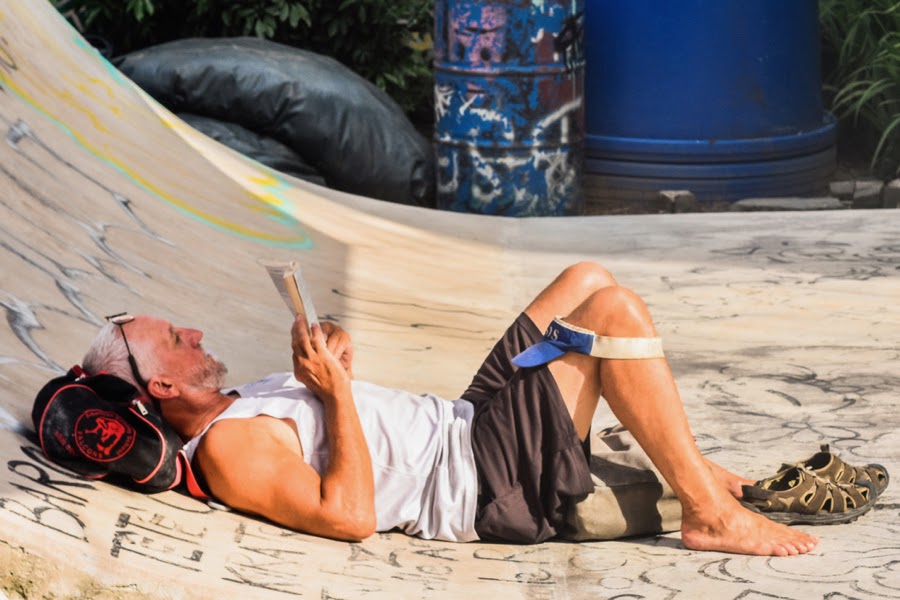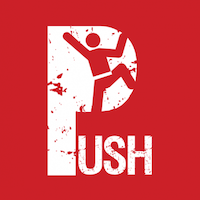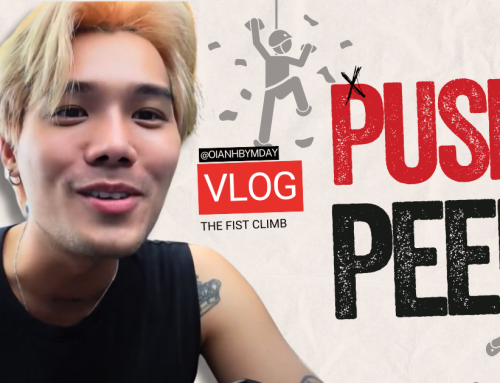You don’t stop climbing because you get old. You get old because you stop climbing.
There are hundreds of climbing videos out there featuring fearless young things being rad on the rock face. It’s a feature of pretty much every outdoor sport from surfing onwards that the image is dominated by youth. To the point where a lot of people no longer in their twenties and thirties hesitate to take up the sport, thinking that perhaps they’re too old for it. Well don’t sign up for lawn bowling just yet. Climbing is for everyone, if anything it has more to offer the silver ascender because climbing is the perfect combination of strength and strategy – you can think your way up a wall just well as you can haul yourself up.
Every good climbing gym has a sprinkling of silver haired men and women thoughtfully applying themselves, and their experience to the 3D puzzle of the wall. From a fitness point of view climbing provides just what the doctor ordered: a mixture of balance and real world muscular strength building. It’s a workout you do at precisely your own pace. Goals may change over time, but more experienced members of Push are unanimous about the continuing benefits of climbing.
Amongst the competitors at the last Push Rocktoberfest you might have seen Rick Freil patiently and thoughtfully scaling the routes. He wasn’t there primarily to beat others, and yet he was still there to win. He took the time to tell Steve Shipside (himself no teenager) just how.


HOW DID YOU GET INTO CLIMBING RICK?
“I was introduced to climbing by a teacher in 1973 when I was 13 years old. My first experiences with climbing were at Indian Rocks in Berkeley California. Climbing has provided me with different things at different times. And some things that never changed and are still part of the attraction. They all add up to what it is for me now.
When I started it was an introduction to a sense of adventure and challenge that I didn’t know was in me. As I continued to climb and develop my skills it became a quest for the limits of my ability and a way to explore places other people didn’t or couldn’t go. In the 80’s climbing was a fringe sport. Not the game played by so many people as of now. To be a climber of any ability was to be a part of a much smaller tribe than now. The only “climbing gyms” were the actual crags and cliffs built by nature. Maybe John Bachar invented the first climbing gym when he introduced the Bachar Ladder as a training tool.”
What does climbing mean for you now?
“Now climbing for me is a way to keep my history as a climber alive and continuing to grow. It is a way to stay in shape and it is one of the activities I can still engage in. My knees and back are a little beat up from years of abuse…but I can still climb.
Climbing has always also been about community and connection with other climbers. The shared experience…that is still important and meaningful to me. And there is the mental game. Climbing is a moving meditation for me…a way to commit to being present in the moment of movement and dropping away distractions. These are the most meaningful elements that have survived the test of time and failure.”




What advice do you have for people who think climbing is just a young person’s sport?
“Someone who climbs will climb as long as they are able at whatever level they are able. When I was younger I would obsess over not being able to complete a climb. Get upset, get angry, be pissed…keep trying. Now I am just happy to still be able to climb. The essence of the act is still there for me.
For an older person just starting or thinking of starting I would suggest to them that the act and experience and benefits of climbing are about what you take away from it… not how “hard” you climb, or what “grade” you climb. Find your comfort zone, discover your ability and challenge yourself as you feel right for yourself. Enjoy it, it is a gift that keeps on giving. I used to compare myself to grades and other climbers. I am excited to be an “older” climber because now that part has fallen away and climbing is just FUN. Although I will admit to comparing myself to myself from week to week and want to go back and try things I fall on until I get them sometimes. Part of the FUN.”
Words by Steve Shipside.



